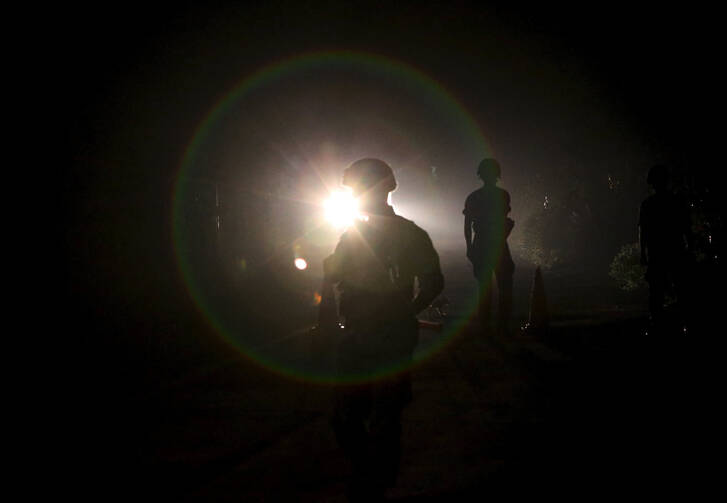North Korea’s claimed test of a hydrogen bomb this week had one immediate casualty: the Stalinist outpost’s already strained relationship with its largest and most important neighbor, China.
China, which said that it was not notified in advance of North Korea’s fourth nuclear weapons test, denounced it: “The Democratic People's Republic of Korea (DPRK) conducted once again a nuclear test in disregard of widespread opposition from the international community. The Chinese government is firmly opposed to that.
“To realize denuclearization on the Korean Peninsula, prevent nuclear proliferation and safeguard peace and stability of Northeast Asia is China's firm position. We strongly urge the DPRK side to honor its commitment to denuclearization and stop taking actions that worsen the situation,” China’s Foreign Ministry said in a statement.
Whereas the two countries a once had a “hand in glove” relationship dating back to the Korean War, China’s path towards a market economy and North Korea’s adamant adherence to hardline communism both politically and economically has pulled the two apart. Relations have soured more rapidly since Kim Jong-Un, who turned 32 on Friday, became the country’s leader following the death of his father Kim Jong-Il in 2011.
North Korea tested its first nuclear weapon in 2006. Wednesday’s test registered as a 5.1 earthquake, which analysts say makes the bomb larger than anything the rogue nation has exploded before, but not large enough to be a true hydrogen bomb, which is many times more powerful than a simple atomic bomb.
Regardless of the bomb’s size, the damage to relations to North Korea’s relationship with China, upon which it still relies for food and numerous basic raw materials, is clear.
“Since the last test in 2013 China has cooled considerably in its friendship with North Korea. Now, after the fourth test, they are clearly mad as hell with Kim and Pyongyang. Many in the Chinese leadership feel the regime in Pyongyang is blackmailing them with nuclear tests in return for increased aid. China is focused on its economic downturn and doesn't need a troublesome neighbor,” Paul French, the author of North Korea: State of Paranoia, told America via Facebook Messenger.
While its management of North Korea was once a regional bargaining chip for Beijing, its lack of influence there is instead a growing problem.
“Whilst China is an economic superpower it has not yet emerged as a diplomatic superpower. This is an opportunity for them to step up, reconvene and lead a new round of Six-Party Talks and, at the same time, work closely with America to find an Iran-style solution to North Korea. They could play this as a win, get international kudos and work closely with the US. So far it seems they will fume in private, be mealy-mouthed in public and squander another chance to seriously take the lead in regional and world affairs,” French said.
Steven Schwankert, author of Poseidon: China’s Secret Salvage of Britain’s Lost Submarine (Hong Kong University Press), is America’s Beijing correspondent. Twitter: @greatwriteshark.








